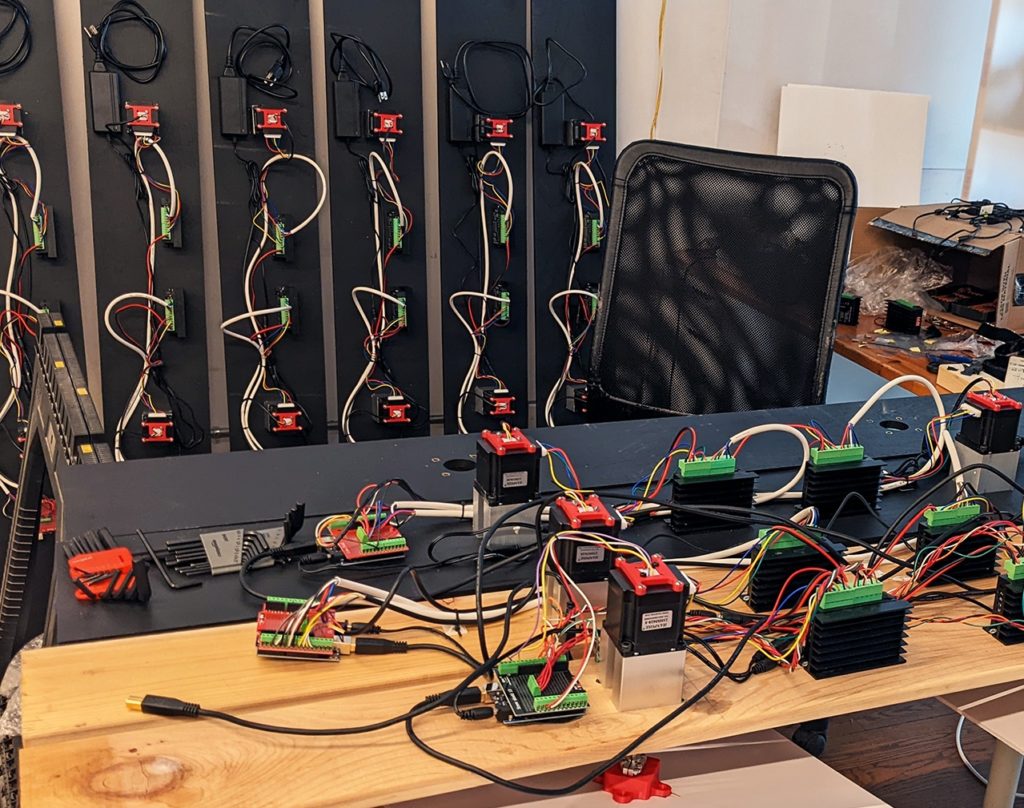
Art may be subjective, but all of our readers can appreciate the technology that goes into kinetic art. That term encompasses any piece of art that incorporates movement, which means it can be as simple as a sculpture that turns in the wind. But by integrating electronics, artists can achieve impressive effects. That was the case for Nicholas Stedman and his Devicist Design Works team, who built the Flux kinetic art installation for Shopify’s Toronto offices.
Flux is a massive 40-foot-long kinetic art piece that hangs suspended from the ceiling in the Shopify offices. That length is divided into 20 individual planks, each of which contains two reflective prisms. The prisms rotate in different patterns, resulting in mesmerizing visuals as light reflects around the art piece and the surrounding office. It is striking in its industrial minimalism, but subtle enough that it blends into the space instead of overpowering it.

Stedman’s team used stepper motors to rotate the prisms. 20 Arduino Uno boards control the steppers through silent TMC2160 drivers and receive feedback on position via AS5600 magnetic encoders. A Raspberry Pi single-board computer running a Node.js program coordinates the operation of the Arduino boards through USB. The team also developed 3D simulation software that helps them create animation patterns in a virtual space before deploying them in the real world.
Website: LINK


